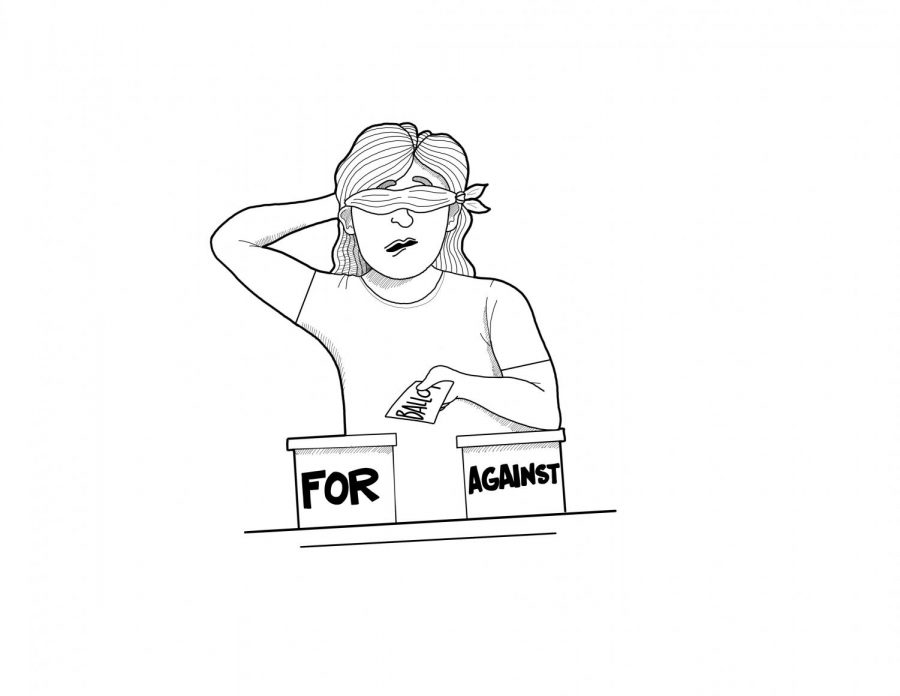Don’t vote if you’re uninformed
Every vote counts, which means uninformed votes have unintended results
March 27, 2018
With the ASWSU elections completed earlier this month, students all over campus were given a chance to come forward and give their opinion in the form of a vote. There was a large variety of candidates and policies on the ballot, and everyone had a chance to weigh in.
However, with so many issues to vote on, it seems fair to wonder how many students knew exactly what they were voting for. Maybe they were only interested in one particular issue, or maybe they just didn’t know much about the candidates for a certain position.
When it comes to the ASWSU online ballot, it definitely feels easier just to pick someone randomly when faced with an uninformed choice. The website doesn’t allow a user to move on without selecting something, and the “no vote” option is extremely easy to overlook. It is tempting to just choose someone and move on.
On the surface level, this seems perfectly fine. After all, it’s just one vote. One uninformed vote seems inconsequential.
Of course, that’s assuming only one student is voting uninformed.
The reality is that there’s a high likelihood most students are voting without being fully aware what they’re supporting. They could be backing a cause they don’t believe in, and that could do a lot more harm than good.
However, with the mantra of “you need to vote!” showing up everywhere, there is a certain level of conflict. We’re supposed to vote, but should we vote on things that we don’t know about?
Cornell Clayton, a political science professor at WSU who has written extensively on American government and politics, believes that in elections lacking mental shortcuts, such as the party indicators that show up in national elections, it may be best for one to steer clear of casting their vote.
“What you should do is educate yourself first so you can vote on all the ballot issues,” Clayton said. “If you don’t do that … from a democratic standpoint it’s probably better to not vote on those candidates or issues you are uninformed about.”
It is important for students to know that their vote is their voice, and by casting it without prior research, they’re giving their voice to something that may not deserve it.
On the level of a single individual, this may not be a problem. However, when lots of voters cast their votes at random, a candidate could be elected by people who don’t even agree with their platform. A candidate whose views mirror those of the community may be ignored by people who would have supported them had they taken the time to seek out more information.
This is especially pertinent in a local election like ASWSU’s. In national elections, there’s at least an indicator by the names of the candidates to give the public an idea of which direction a candidate leans. They can then vote based on which party they more closely align with. These indicators are an extra level of information voters don’t have in smaller elections. Without these kinds of shortcuts to lean on, uninformed voting becomes that much more harmful.
The next time election season rolls around, consider doing a little bit of research before casting that vote. And if you can’t, excusing yourself from votes you don’t have the background knowledge on is definitely something to consider.


















